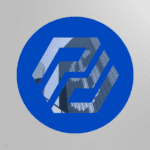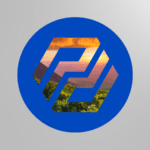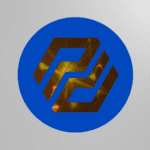Did you know that 81 of the top 100 Public Companies are using blockchain technology?
Huge companies like Samsung, VISA, Shopify, Nvidia, Amazon, and Intel, all have live blockchain operations.
Blockchain technology is slowly but surely making its way into businesses all over the world. Many companies are still figuring out how to use it, while others have already begun implementing it in various ways.
Here are a few examples of businesses that are using the distributed ledger technology and what for.
1. Amazon
Amazon Web Services (AWS) has been in the blockchain space since early 2016 when the Amazon Managed Blockchain launched. This was an extension of its existing Amazon Web Services cloud computing platform.
The cloud computing company has launched an Amazon Quantum Ledger Database (QLDB) to store information on the nascent technology. But rather than selling the technology itself, Amazon is selling access to the database.
Customers can build and run applications on top of blockchain platforms like Ethereum and Hyperledger Fabric.
2. BMW
Luxury automaker BMW uses the distributed ledger technology to track materials, components, and parts in multi-stage international chains. This is done to ensure the traceability of ingredients and raw materials.
Multi-stage supply chains are a common feature of modern global trade. They require a high degree of collaboration and the presence of intermediaries. The blockchain technology application could help facilitate more efficient exchanges of information between parties.
The company is also looking to expand its technology to include other data, such as driver and vehicle information.
3. Walmart
In order to be a more sustainable company, Walmart has been using IBM’s supply chain technology – Hyperledger Fabric platform. Walmart plan on tracking their groceries from farmers all the way through distribution channels in an effort for customers to have peace of mind about where exactly these products come from before buying them!
4. Google
In a joint effort, Google and Chainlink are working on ways to streamline how blockchain data is processed. The partnership could make it easier for businesses that use blockchain for their applications to incorporate data from outside sources into the blockchain.
BigQuery, an enterprise data warehouse, will allow users to submit queries, which Chainlink will then use to fulfill and return data. The distributed ledger technology could use this to create smart contracts and manage data related to payments and settlements. It could also help them process data from blockchain-based applications and make transactions more private.
5. IBM
IBM has been very active in the development and deployment of the technology ranging from work with Hyperledger Fabric to the development of the IBM Food Trust. The company has also been part of several blockchain consortiums, including OpenCensus, the IoT Consortium and the Open Ledger project at the Linux Foundation. The company has used Hyperledger Fabric for several blockchain projects, including TradeLens and the Food Trust. IBM is smart contracts to track food supply chains. IBM’s Food Trust platform began operations in August 2017 and it is being used by Nestlé SA, Unilever NV, and others.
6. JPMorgan
JPMorgan, the largest bank in the United States, uses blockchain to reduce the time and cost for financial transactions by using a shared ledger.
The Interbank Information Network is an innovative new blockchain that JPMorgan has created to speed up cross-border payments between banks. The network uses a shared ledger to resolve delays when one bank thinks a transfer might violate an international sanction.
The network has already been adopted by over 100 institutions, which JPMorgan says is a testament to its effectiveness.
7. Mastercard
Mastercard has been a pioneer in payments and technology. The company is always looking to improve the payments process and implement new technologies into its systems.
Mastercard is working with TOPCO to bring a new level of transparency to grocery shopping. The companies announced they’re teaming up to get a new distributed ledger technology system that tracks food along the supply chain — from the farm to consumers’ tables.
In addition, Mаsterсаrd is collaborating with bаnks to develop а speedier, more trаnsраrent сrоss-border payments network. The service combines on- and off-blockchain technology that will allow users to send money from one country to another in real-time.
8. Microsoft
Microsoft is expanding its role in the distributed ledger space with its new Azure Blockchain Workbench, a framework that helps create a blockchain environment suited to an enterprise’s particular needs. The framework can help integrate blockchain into enterprise processes, and with any luck, it could make the technology more business-friendly.
The idea is to build on existing blockchain technologies, like Ethereum and Hyperledger, with Microsoft Azure’s cloud computing technology and support. Businesses and startups looking to strike up a relationship with blockchain can now do so without any technical know-how.
9. NASDAQ
Nasdaq has been one of the earliest adopters of blockchain technology. So when Nasdaq started working on a blockchain voting technology, it was safe to say that this would be something special.
South Africa’s central securities depository (CED) uses NASDAQ’s blockchain technology to power an electronic voting system for shareholders to vote electronically. The decentralized system would make it easier to vote while giving shareholders complete control of their electronic votes. This is a significant step forward for blockchain technology.
Blockchain, the future
Many companies have been making smart moves to ensure they stay on top of the game. One of the most recent trends in the business world is blockchain technology. With blockchain’s ability to handle digital assets, including assets that are difficult to trace, companies are incorporating the technology into their operations.
Contrary to popular beliefs, the distributed ledger technology is not an abstract concept. It has real tangible value. The technology is fascinating, and it’s no wonder that businesses are adopting it. Blockchain provides a new way of conducting business, and has the potential to revolutionize the way we interact with one another.
About Peerplays
We are dedicated to empowering people’s freedom to create greater outcomes, giving them control over how they own and collaborate worldwide. The core foundation for Peerplays success in 2023 relies primarily on the release and promotion of mechanisms incorporating decentralized ID, gamification, and ‘handshake’ like onboarding that is easily accessible to people who use smartphones. At Peerplays, we are on a mission to revolutionize the world of blockchain technology and empower individuals with the freedom to take control of their digital lives. To achieve this ambitious goal, we are constantly on the lookout for the most talented individuals who share our passion for innovation and our commitment to decentralization. If you believe in the transformative potential of blockchain technology and are eager to contribute your skills and expertise to this groundbreaking project, we want to hear from you.




